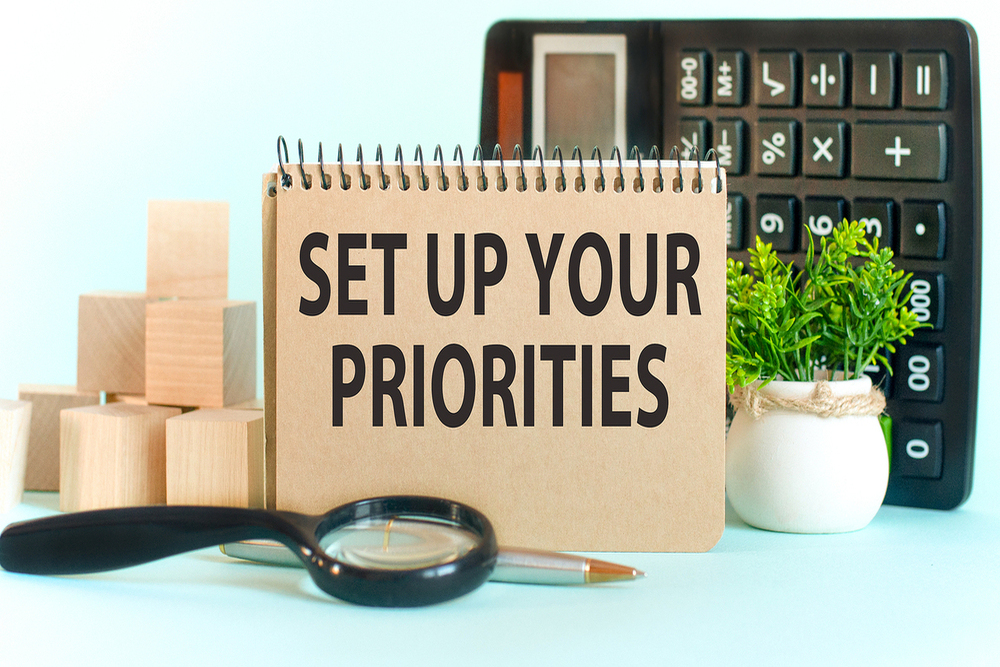The article “Financial Priorities For The New Year” was originally published on MoneySense on January 11, 2021.
January is a good time to review your investments, tax and debt management planning. Here’s how to get started.
The new year is often a time for resolutions and a fresh start, and it makes sense for your finances to be a part of that routine. Here are the top three areas I think everyone should be considering as they start the new year.
Tax planning
Lots of people received the Canada Emergency Response Benefit (CERB) in 2020, and there was no tax withheld on those payments. CERB is taxable income and recipients will get tax slips in February that will likely lead to either a lower tax refund than they received in previous years, or even tax owing for some when people file their tax returns.
Generally, an employee who works primarily from home can claim home office expenses as a deduction on their tax return. With so many people working from home this year, there will be many who can claim a home office deduction. Canada Revenue Agency (CRA) introduced a simplified procedure for anyone who worked more than 50% of the time from home for at least four consecutive weeks. Eligible taxpayers can claim $2 for each day they worked from home, up to a maximum of $400. Some people may be entitled to a larger deduction using the detailed method for claiming home office expenses.
It isn’t too late to do some tax planning for the last calendar year. If you have Registered Retirement Savings Plan (RRSP) room and your income was moderate or high for 2020, you can make a RRSP contribution right up until Mon., March 1, 2021. Contributions made in the first 60 days of 2021 are deductible on your 2020 tax return, which is due in April.
I do not generally recommend people take out RRSP loans to top up their RRSP unless they had an extraordinarily high income in that tax year. If your income is going to be comparable in 2021 to 2020, rather than borrowing money and committing yourself to paying loan payments each month, consider setting up a regular monthly contribution to your RRSP for a comparable amount. You may have to wait another year to get the tax refund from your RRSP contributions, but saving will become part of your monthly budget without taking on more debt, and you will likely receive a tax refund next year that can then be contributed to your RRSP at that time. RRSP loans are often reactive, for people who have got behind on their savings, whereas a monthly RRSP contribution can be more proactive and avoids debt.
Investments
Some investors ignore their investments; or they don’t rebalance as the value of their investments fluctuates; or they leave cash sitting idle that could be invested.
As your 2020 year-end statements hit your inbox, this is a good time to review your investments and get properly set up for the year ahead.
This may be a good year to pay closer attention to your investment fees. We’re hit with relatively high fees on some retail mutual funds in this country, averaging about 2% and sometimes higher. Conservative investors who have a high allocation to bonds may be paying 2 per cent on their mutual funds to earn 2 per cent on their bonds. 2% minus 2% is, well, zero.
If someone has a Defined Contribution (DC) pension plan or group RRSP at work, they should make sure they review their investment options, and invest as aggressively as their risk tolerance allows to try to maximize their long-run returns. If there is a company match on contributions, maybe this is the year to try to maximize that free money by increasing contributions.
For taxpayers who have non-registered or corporate savings, they should generally be making sure their tax-free savings accounts (TFSAs) are maxed out. Canadian residents over the age of 18 just received another $6,000 of TFSA contribution room as of Jan. 1, 2021.
Parents with a Registered Education Savings Plan (RESP) or those who have a Registered Disability Savings Plan (RDSP) should try to maximize their government grants for the year. Those grants may vary for some contributors based on their income or province of residence, but whether you make contributions as a lump sum or monthly, make sure you have a plan for getting the most out of your government grants for 2021.
Debt
If you have high-interest-rate debt, like credit cards or unsecured lines of credit, you may be better off focusing on repaying those first before investing. Consider consolidating your debt into a loan or a secured home equity line of credit, or add high-interest debt to your low-interest mortgage; any of those moves can help you reduce the interest charges. At the same time, it’s important to avoid the temptation of racking up more debt if you suddenly have more credit available to you.
If you have an emergency fund or even a TFSA sitting in a savings account, you may be earning interest of 1% or less. If you have debt that is at a higher interest rate, it may make sense to use your savings account to pay down that debt. Avoiding paying interest at more than 1%—especially at much higher rates—is better than earning interest at 1%.
Summary
There may be some dates or deadlines for financial decisions that are timely. Otherwise, there is no magic to doing certain financial planning tasks in the new year that could be done year-round. But there is something to be said about new year’s resolutions, and that fresh-start mindset, if applied to your money, can make the year ahead a great one.
Jason Heath is a fee-only, advice-only Certified Financial Planner (CFP) at Objective Financial Partners Inc. in Toronto. He does not sell any financial products whatsoever.

